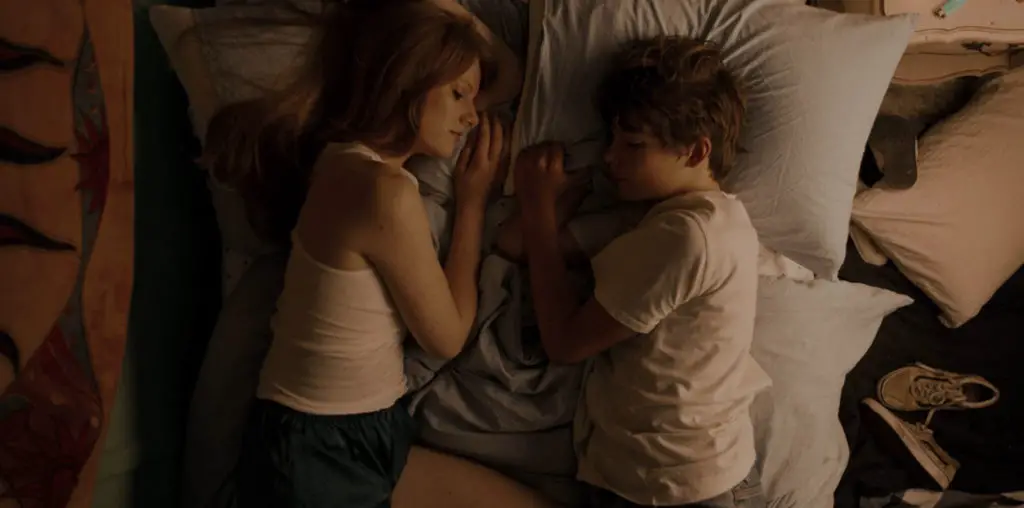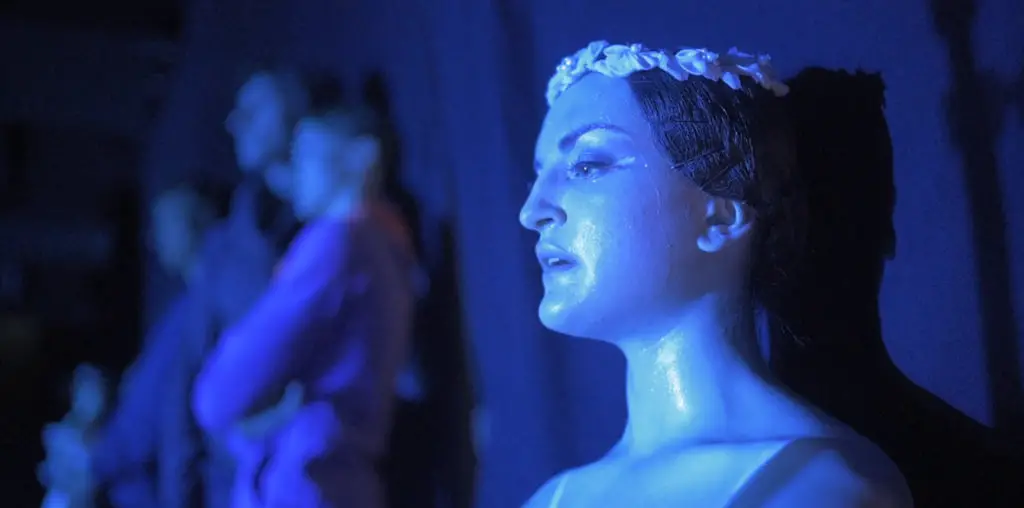
This French-like German film is full of clever characters, interpersonal tensions and a nicely captured setting, and yet it’s also painfully dull and ponderous. It’s August 1956 in East Germany, the last day of author Bertold Brecht’s (Bierbichler) summer holiday. Oddly enough, he’s joined there by his wife, daughter and assistant (Bleibtreu, Minichmayr and Irrall), as well as three mistresses–a drunk (Rogall), a young actress (Hain) and an anti-communist (Zednikowa) who’s accompanied by her husband (Fintzi). Everyone is aware of the various interrelationships, and they all seem to accept it as part of the failing social structures around them, not to mention the free-living artistic circle they move in. But as Brecht’s health weakens and the Stasi agents close in, they become increasingly aware that things are about to change drastically.
This sense of impending doom is remarkable in every element of the film, creepily underscoring the balmy summer weather and the apparently carefree lifestyle lounging in the sun, skinny-dipping in the lake and debating politics and culture. The complicated themes are also very rewarding, as are the richly detailed performances. And yet the film is so slow-paced and subtle that it’s almost maddening to watch. We’re never given a clear insight into these people; we merely see their oddball quirks and their strained relationships in typical introspective movie style. That is to say: Lots and lots of dialog about stuff the film isn’t really concerned with. It does keep our interest (just), but it also leaves us wanting to better understand the time and place, not to mention the supposedly colorful people living there.

